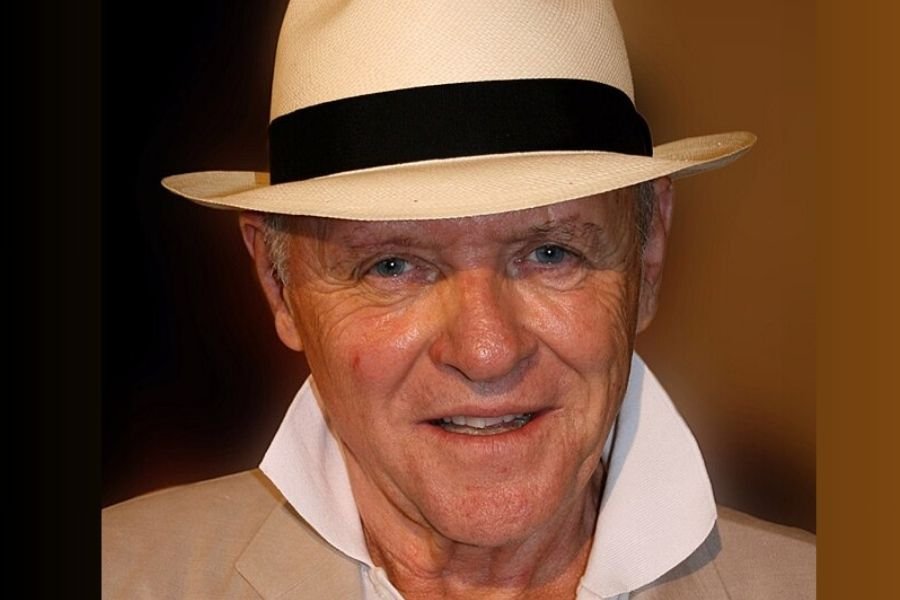With the popularity of Dry January rising over the past decade, the new year is now a many people to experiment with sobriety. For some people, giving up alcohol for the month is a temporary break, but for others it’s the start of a lifelong lifestyle change as they trade in beer, wine and cocktails for mocktails and non-alcoholic drinks.
Anthony Hopkins knows a thing or two about living life without alcohol, as he quit drinking nearly five decades ago. In a video shared with his fans just two days shy of his 87th birthday, the legendary actor celebrated his 49th sober anniversary and his message may help others who are on their own sobriety journey.
“Forty-nine years ago today, I stopped [gesture indicating drinking],” he shared. “And I was having such fun. But then I realized I was in big, big trouble because I couldn’t remember anything and I was driving a car, drunk out of my skull. On that fatal day, I realized I needed help.” Hopkins realized he wasn’t unique and formed a group with others who had a problem with alcohol use. “And that was it, it was over,” he said.
“I’ve had more fun these 49 years than ever,” he added, countering the common perception that a sober life means a boring one. Alcohol is synonymous with fun in many people’s minds—even Hopkins himself said that drinking was fun—which makes giving up alcohol seem like a big bummer. But Hopkins found, as so many do, that going alcohol-free doesn’t mean missing out on life’s pleasures. “I got sober—it sounds a dull word—but I’ve had a wonderful life,” he said.
People who give up alcohol or other drugs do often miss the “high” they provide, which is why it’s important to be aware of how “euphoric recall” can pull people back to dependency. “Euphoric recall is the act of remembering only the pleasures associated with stimulant use and not the adverse consequences,” according to the Substance Abuse and Mental Health Services Administration’s (SAMHSA). “Euphoric recall is a potent relapse risk factor because it minimizes clients’ perceptions of stimulants’ danger, promoting an ambivalence about quitting.”
Though a sober life isn’t boring, it might seem boring at first. Writer Chelsey Flood has shared how she handled the perceived “agonizing boredom” of early sobriety and what she recognized as the alcohol-driven reasons for that feeling five years later:
1. You are used to being able to change your mood in seconds.
2. You falsely believe you need alcohol to do certain things.
3. You are not used to the way you feel.
4. Everything else takes more effort than drinking.
“Alcohol makes you feel good immediately after you drink it,” she writes. “It gives you a rush and quietens the part of your brain that worries about everything. After you quit, you have to learn ways of doing this without turning to beer. At first, every alternative seems to take a lot longer to create the same effects to a lesser degree. This sucks. And there is no way around it, except to stay on the path of sobriety and learn new coping strategies and relaxation techniques.”
The effort is worth it, according to Flood. “Now I’m almost five years sober, the idea of not drinking being boring is laughable,” she writes. “Life has improved ten times over since I quit drinking.”
People are taking the opportunity to share their congratulations as well as their own sober success stories on Hopkins’ Instagram.
“Congratulations on 49 years sir! I just celebrated my first year sober this past month and I wouldn’t give up my sobriety for anything in the world.”
“I shall be a year sober tomorrow and I’ve had the best year!! I’ve tried before but this time is different and I LOVE sobriety ❤️”
“Amazing. I’m 15 yrs sober now.We are so lucky to be living our best lives. ❤️”
“Thank you for this important share! I have been sober 3 years and 7 months I am so glad that I can share this path with one of my favorite actors ❤️”
“Congratulations! Thank you for the post. It’s 32 years, 6 months and 5 days here! Forever a challenge and I am staying vigilant!”
One person wrote, “If I’m doing the math right, I was also 38 when I quit alcohol. I have two years now, I can only hope to be so lucky and look back on 49. Congratulations!” Hopkins himself responded, “Congratulations on 2 years. One day at a time. You will find a life beyond your dreams. Wishing you a healthy 2025.”
As Hopkins said, there are lots of resources for people who are looking to change their relationship with alcohol. SAMHSA has a National Helpline at 1-800-662-HELP (4357) or go to findtreatment.gov. Alcoholics Anonymous also has a self-assessment quiz that can help you determine if you might have a problem with alcohol.
As Anthony Hopkins, Tom Holland and others share the joy of sobriety and more and more non-alcoholic alternatives become available, there’s never been a more opportune time to experiment with giving up alcohol—even if it’s just for Dry January.







































